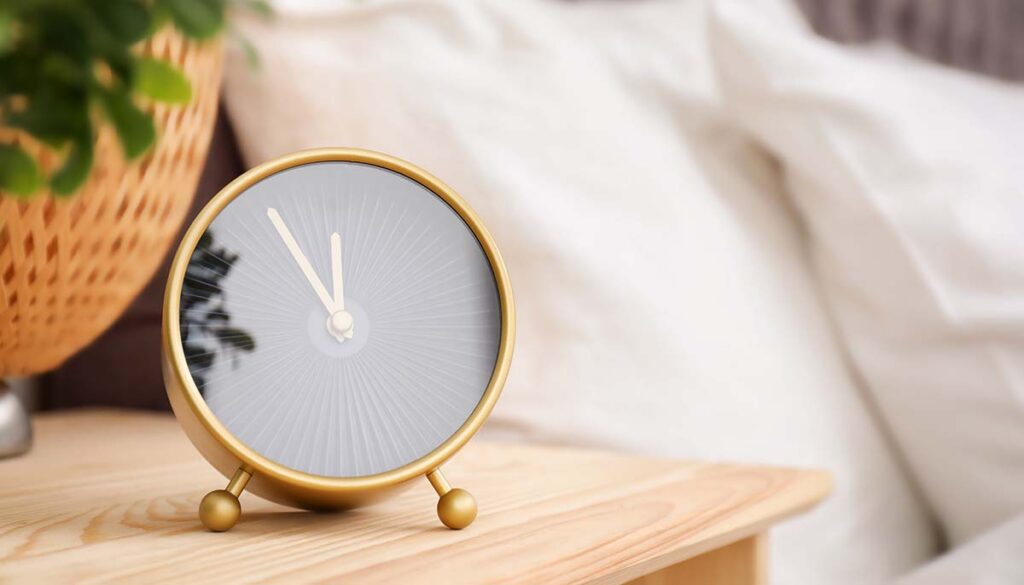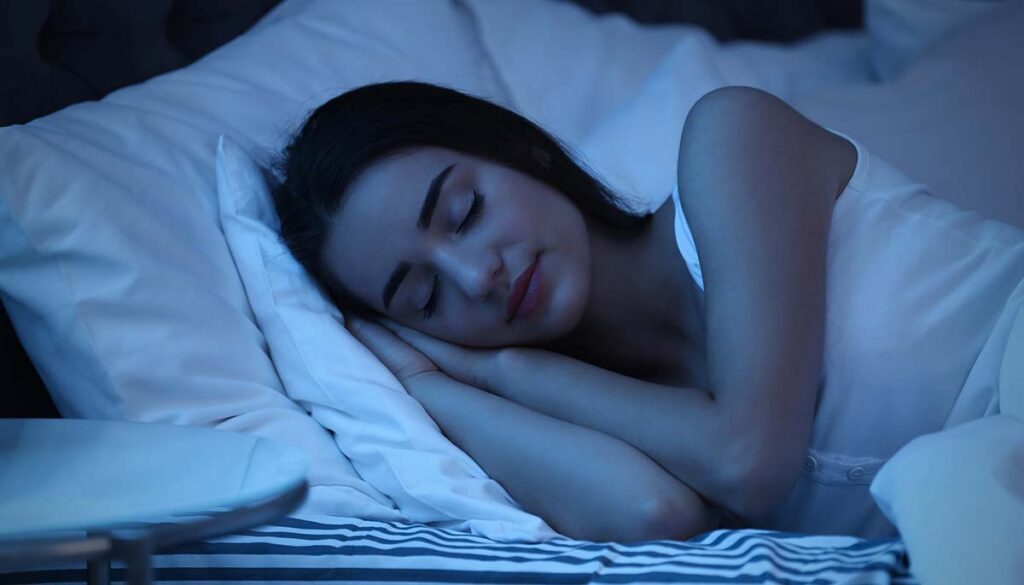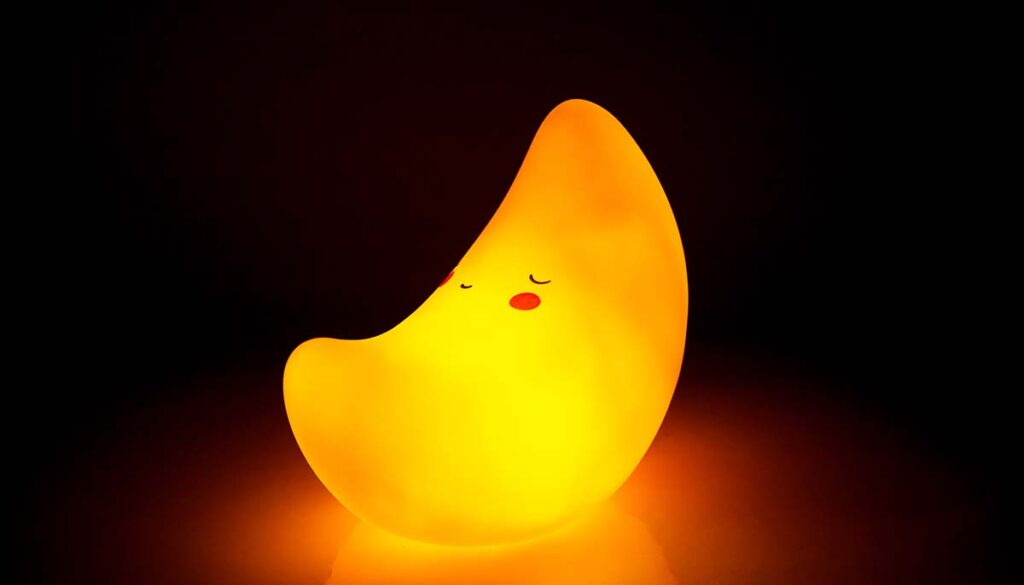As the old saying goes, “the early bird catches the worm.” While there’s definite truth to that, there’s no shame in sleeping in or staying up late.
Biologically speaking, not all people benefit from waking up early. We’re all wired differently. In fact, some people function better if they sleep in, naturally hitting their most productive stride later in the day or at night.
If you’ve always been a “night owl” by nature, don’t worry too much about losing daylight. Sleep science says you might not be missing as much as you think. But if you want to get up and repeatedly slap that snooze button instead, you’re still missing out on much-needed rest. Unfortunately, most of our schedules require us to be bright-eyed and ready to work in the morning with no regard for what’s most natural. But there are ways to combat fatigue and join the early birds with vigor. It’s all a matter of shifting our sleeping and waking habits without sacrificing real rest.
Realistically, waking up early may never come naturally to you, but there are tried and true ways to make it much more manageable. Are you ready to wake up with the sun (or closer to it, at least)? Here are some science-backed tips for rising and shining with more ease, even if you’ll never actually be a card-carrying “morning person” in your heart.
Proper Rest Leads to Feeling Properly Rested

No matter when you wake up, sleep hygiene always matters. Don’t just shift your sleep schedule and expect results overnight. If you’re serious about waking up earlier on a regular basis, you’ll need to establish healthy sleep practices and stick to them consistently.
Before you change those alarms, figure out what habits are negatively affecting you at bedtime. Are you getting enough exercise throughout the week? Does your afternoon catnap last a little too long? Beyond that, your pre-bed rituals play a significant role in the quality of your sleep. Sleep experts say that if you don’t know what to change first, start making tweaks there. If you like to scroll yourself to sleep or shop until you finally drop, tuck your devices in two hours before yourself. Your brain waves will thank you later.
Also, your environment matters. Your bedroom should be a place that makes sleeping soundly possible. And studies show that the more you associate your bedroom with feeling rested, the better you sleep. For best results, cultivate a sleep space that’s dark, quiet, cool, and de-cluttered.
Establish a Nightly Routine That Truly Works for You

Consistent behavioral cues can go a surprisingly long way if you’re having trouble going to bed and getting up when you want (or need) to. Developing a consistent bedtime routine tells your brain that you’re preparing to fall asleep. The more you do it, the more your brain and body will get the hint.
Whatever you decide to do beforehand, make sure that it’s calming. Before bed, do gentle stretches with the lights down low. Take a hot bath or catch up on your reading. Journal, meditate, and do calming breathing exercises. Or, just sit back, relax, and listen to the kind of music that helps you unwind.
If you plan to read, make sure you reach for an actual book. Ideally, you’ll want to avoid any and all devices. The tricky lights behind our screens send mixed messages to our brains, wrongly signaling that it’s time to get up when it definitely isn’t. When the actual morning rolls around, you’ll likely find it that much harder to get up if the last thing you did before bed was technology-related.
Make a Sleep Schedule and Keep It

For some of us, no matter when we fall asleep, we always wake up at the same time. If you like to stay up far beyond midnight, but you wake up with the sun (and then can’t get up), it’s time to adjust your sleep schedule.
A consistent sleep schedule can do wonders for those who want or need to get up early. Sleep experts suggest seven to nine hours of sleep to feel refreshed throughout the day, but the magic number varies for most people. I find that 7 is the sweet spot, and if I somehow manage to sleep 9 hours, I feel sluggish all day.
Sometimes there’s nothing better than sleeping in on the weekend, but unfortunately, this sudden shift to our usual routine can drastically disrupt our circadian rhythm. And if you’ve been mixing it up, you’ve probably noticed that Monday morning is no picnic, to put it mildly.
Read More: Waking up in the Middle of the Night? Here’s How To Get Back To Sleep
Gradually Go to Bed Earlier and Earlier

Once you feel good about your adjusted sleep schedule, it’s time to start reversing the clock. But pace yourself with this one. Experts say to start small if you want to go to bed earlier without tossing and turning for hours. You can set your earlier bedtime by 15-minute increments at a time.
As for your morning routine, adjust your alarms so you’re waking up 15 minutes earlier. And keep your slightly modified schedule the same for a few days before shifting it again. You’ll have the best results by making this change ever so gradually.
Exercise Regularly

A consistent exercise routine is a proven method to fall asleep sooner and sleep more soundly. And it’s crucial for your overall health. Not so mysteriously, exerting energy regularly leads to better sleep, higher energy levels throughout the day, and a new desire to get out of bed. So with a brighter tomorrow in mind, start moving today.
No matter what hour you choose to work out, sleep studies have shown that regular exercise can kick our circadian rhythms into gear a whole 30 minutes earlier. Sometimes, all it takes is a little extra rest to start your day significantly more refreshed.
Read More: Common Mistakes That Destroy a Good Night’s Sleep
Tend to Your Circadian Rhythm

Of all the things that have a profound impact on our wake-sleep cycle, light is one of the strongest. Our circadian cycle is the 24-hour period our body experiences, primarily shaped by our relationship with darkness and light. Sleep experts say that if you’re a night owl, this may impact you even more.
Some studies suggest that natural light has a more powerful effect on those who are naturally inclined to stay up late. So by exposing yourself to light at just the right times, you should be able to reverse your body clock for the better. Get some bright light in the morning. Scientifically speaking, this is viewed as one of the best ways to transform into more of a morning person naturally.
Cut Back on the Coffee
The earlier you stop drinking caffeine, the better off you’ll be. According to the National Library of Medicine, you should close the coffee shop at least six hours before bedtime. And if you’re sticking to a healthier sleep schedule consistently, you should find yourself needing that late afternoon pick-me-up less often.
Caffeine disrupts our sleep cycle in various ways. While difficulty falling asleep is one major issue, the quality of a system still running on caffeine will be subpar. If you can’t go without it, have your cup of joe or green tea only during morning hours, and keep your consumption to a minimum.
Don’t Eat Too Close to Bedtime
Our hunger levels and circadian rhythm have a unique relationship. When and what we eat always affects our sleep quality to some extent. So along with a health-conscious diet, close the kitchen early with tomorrow morning in mind. Continuous late-night eating keeps your sleep-wake cycle and your eating cycle in a desynchronized state. Over time, your metabolism will suffer seriously.
This change can be a severe challenge for night owls, who often eat all of their meals later and enjoy grazing late into the evening, present company included! But scientific evidence (and my own personal research) confirms this shift is worth the extra effort. Basically, if you keep the eating hours of a morning person, you’ll be helping your body adjust to an earlier routine. After all, food takes time to digest, so the later we eat, the later that digestion process will be happening. Give your appetite a little time to try to catch up to your new schedule.
Ultimately, what we all need to sleep soundly and wake up refreshed will never be exactly the same. But developing healthy sleep hygiene habits is essential for everyone, no matter how our specific routines may vary. And if your sleep routine and morning routine just aren’t jiving, it can’t hurt to try something new.
However, if you stick with all of these science-backed tips and still struggle to get up, it’s time to talk to your doctor and see if something more serious might be happening.
Read More: Should You Consider a “Sleep Divorce?” Here’s How to Decide













